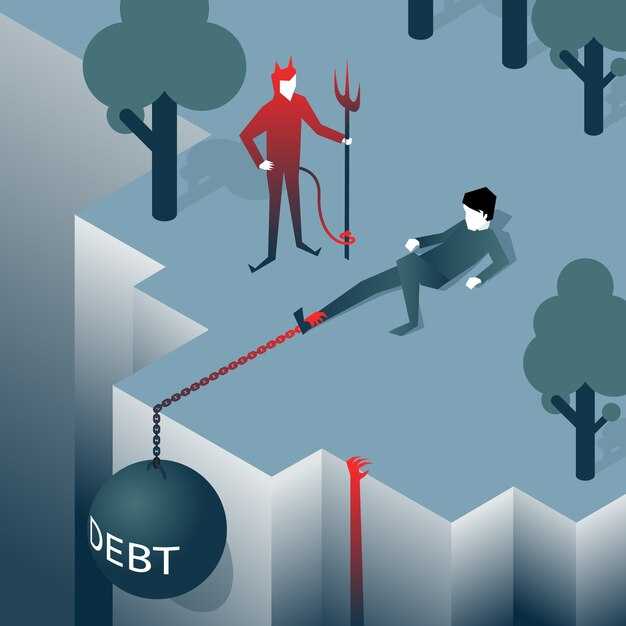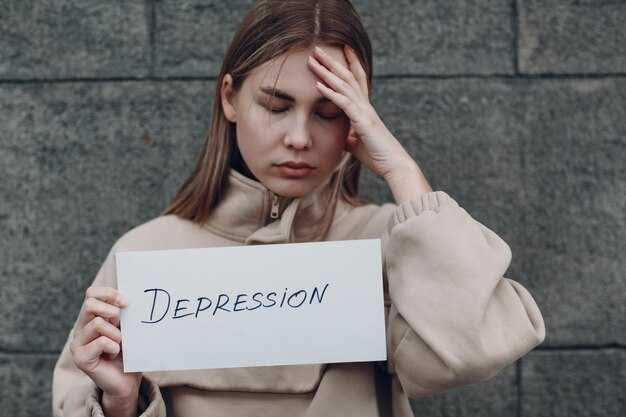Experiencing abuse and neglect as a child can leave you convinced that you must manage everyone’s emotions wherever you go. If your family is unhappy, you might pour all your energy into trying to cheer them up; when they’re angry you attempt to brighten their mood; when they bicker you sacrifice your own calm trying to mediate people who don’t actually want peace. But escape routes exist. Today’s letter comes from a woman I’ll call Malia, who writes: “Hi Anna — to get right to it, how would you handle holiday gatherings with a very negative family?” Okay — I’ll pick out a few things in Malia’s short note and then return to some bigger points. Here’s what she is dealing with: she’s thirty, has been hosting the family holiday meals the last few years, and as the day approaches her anxiety spikes, her chest tightens and childhood feelings resurface. Growing up she had a mother who was emotionally unavailable and an addict; her father left before she was born, and her mother spent years with an abusive partner until legal efforts finally ended it. Her mother holds onto a victim stance — acting as if life happens to her rather than for her — and wears anger on her face and in her posture. Unfortunately, two of Malia’s siblings have taken on similar ways of seeing the world; they seem able to find something negative about anything, which is almost impressive in its consistency. Malia still feels compelled to try everything she can to make them happy, to catch a genuine smile or laugh, because that’s what she learned: keep the peace, keep them amused so they won’t dwell on the bad. That approach is exhausting and, frankly, no fun. She apologizes for the length and asks if there’s any quick advice. Thank you for writing, Malia — this situation is familiar: many of us were raised by addicted parents and develop the same peacemaking reflex. A lot of the tools for handling that impulse come from Al-Anon. I first began going to Al-Anon after my mother died at thirty; she struggled with alcohol and drugs, and even though her death was not a surprise, she had made holidays feel special when she was alive—spending freely on gifts, decking the house out, and creating the sense that Christmas was joyful. After she passed, attempts to distract the family with humor and levity were a way to avoid feeling the hollowness that remained. So that’s part of where this counsel comes from. You said you’ve been hosting the holidays for some years — that’s a big responsibility, especially in your twenties, and shows a generous heart. Wanting everyone to have a happy holiday is a kind and admirable impulse. At the same time, it’s showing up as anxiety: the tight chest, the resurfacing childhood emotions. The negativity you zeroed in on is the core discomfort. It sounds like you’ve done a lot of personal growth and now have choices about how you respond during holidays; some family members may eventually change, but others probably won’t. Many people remain stuck in a negative mindset their whole lives. Part of the hard-won understanding is that you are not responsible for how others feel. If someone is habitually negative, especially when addiction or a victim stance is involved, you cannot reliably change their inner state. Addiction, trauma, brain chemistry, environment and learned habits all shape a person’s outlook — it’s not a simple cause-and-effect you can fix by trying harder. Expecting your mother or siblings to be different this year and attempting to force that change will drain your mental, emotional and physical energy. That effort to alter someone else’s mood is, in effect, manipulation, and it comes at the cost of your own resources. Also, people entrenched in these patterns are often not very receptive to attempts to be “fixed.” There’s a subtle, painful dynamic where you believe others must change for you to be happy. Of course, if someone’s behavior is dangerous or violent, then their conduct must be stopped—boundaries are appropriate and necessary. But if the problem is chronic negativity, you don’t have to subject yourself to it without limits. You might still want to be with your family — that desire is natural — but you can do so with some protective edges. For context: large family gatherings often stir up old wounds. Even in families that were loving in some ways, reunions can dredge up memories of being neglected or dismissed, of parents failing to protect you when you were in harm’s way, or shifting blame onto you as a child. The impulse to “make everything right” and to win validation by orchestrating a perfect holiday is common, but it rarely works because these patterns are not governed by logic alone. Addictions and entrenched behaviors are cyclical — like a planet with a bright side and a dark side rotating in and out of view. When the sunny side faces you, the person seems wonderful; when the dark side turns toward you, they can become cold and indifferent for reasons you can’t predict. You might fool yourself into thinking that if you keep telling jokes or being kind you can prevent the planet from turning, but cycles will continue regardless. That said, you can hold compassion for family members who are in their own pain while maintaining a sense of detachment from their emotional weather. With a parent it’s especially hard because a child’s longing for a mother’s approval persists even into adulthood. Still, cultivating an awareness separate from that need — noticing your own reactions without being swept away by them — is possible. There are supportive fellowships that help with this perspective: Al-Anon is for families affected by alcoholism, and Adult Children of Alcoholics & Dysfunctional Families addresses a wider range of family dysfunctions. Hearing others’ experiences helps you see patterns you might miss in your own situation. Many people will recognize your urge to make holidays pleasant and the misguided hope that a few efforts of cheer will produce lasting harmony. Harmony is a beautiful aim, and wanting it is understandable, but it can be healthier to accept that other people may not change much. Ask yourself: do I want to be with them even if they remain negative? If so, can you bring a greater degree of acceptance so you aren’t exhausting yourself trying to shift their mood? There’s a way to cultivate an emotional neutrality toward their negativity — not to fix or ignore it, but to note it without taking ownership. Decide what your emotional center will be, what boundaries you’ll set, how long you’ll stay, and what behaviors you won’t tolerate. A handful of practical boundary strategies — what might be called “ninja boundaries” for dysfunctional families — can protect your energy and actually make it easier to open your heart a bit without burning out. For example: keep visits time-limited rather than open-ended. People who travel home often feel optimistic on the plane and then wish they hadn’t committed to several days when the negativity starts. You can keep your visit short, or stay offsite in a hotel, AirBnB or with friends if that’s an option. If you’re driving choose to have a car; if not, have ride services like Uber or Lyft ready so you can leave quickly if you need to — a quiet but effective plan B. Since your family is coming to your house, consider setting a clear end time so the stress lasts only a set number of hours rather than an entire day. Another tactic is to “bookend” the event: before the gathering, check in with a supportive friend who understands your boundaries — tell them your plan (for example, no overnight guests, no political conversations, no dredging up the past) and have them agree to be your accountability partner. Ask them to check in or to be someone you can text during tense moments for a quick sanity check: “I slipped and brought up something — how can I change the subject gracefully?” After the visit, debrief with that friend about what went well and what was hard. This keeps your experience grounded in reality and reduces replaying or catastrophizing afterwards. Living with addicts in the family often produces long-term struggles for those who survive that environment, including difficulties in relationships and mental health of their own. What helped many in Twelve-Step circles was refocusing attention from trying to control others to taking care of oneself. That idea sounds odd at first — “But they’re out there suffering; I must drop everything to help”— yet prioritizing self-care allows you to be genuinely helpful when it’s appropriate. Boundaries are actually a gift to everyone involved; people don’t respond well to help given grudgingly. Showing up resentfully doesn’t feel like love. Presence that’s freely offered, rather than coerced or guilt-driven, is the most nourishing thing you can provide. It’s also completely okay to stop hosting if you need a break. Consider looking into Al-Anon or Adult Children groups and reading their literature; learning what’s behind addictive behaviors helped many to stop blaming themselves and to see that love alone may not enable someone to stop drinking or using. Understanding that a parent might have loved you yet been unable to stop an addiction can be profoundly liberating — it helps lift the burden of believing you caused or deserved the neglect. Releasing that narrative is a major part of healing: recognizing it wasn’t your fault, that you weren’t a bad child, and that you can be a capable adult who still cares for family without being consumed by them. The best gifts you can bring to a holiday are your emotional regulation and steadiness. For people who were traumatized early on, nervous-system dysregulation is common: emotions surge and it becomes hard to see choices clearly. If you suspect dysregulation, it helps to identify the signs and learn techniques to re-regulate. There are both quick tools and longer-term practices that reduce reactivity and give you more freedom to choose how to act. When you are regulated, you can navigate family gatherings without being driven by chaos; when you are dysregulated, anger or panic often feels like the only available energy. If you’d like to work on regulation, there are resources available, including a short quiz to spot signs of dysregulation and a book called Re-Regulated that lays out methods for steadying the nervous system. That knowledge levels the playing field and gives you practical steps to create calmer holidays. You deserve moments of joy — small bright spots like red berries on a wreath — and you can make room for them by protecting your capacity rather than squandering it trying to change others. Take the quiz, explore strategies for re-regulating in the moment and over time, and consider support groups that offer perspective and practical tips. Wishing you steadiness and small, real pleasures during the holidays. [Music]
![Experiencing abuse and neglect as a child can leave you convinced that you must manage everyone’s emotions wherever you go. If your family is unhappy, you might pour all your energy into trying to cheer them up; when they’re angry you attempt to brighten their mood; when they bicker you sacrifice your own calm trying to mediate people who don’t actually want peace. But escape routes exist. Today’s letter comes from a woman I’ll call Malia, who writes: “Hi Anna — to get right to it, how would you handle holiday gatherings with a very negative family?” Okay — I’ll pick out a few things in Malia’s short note and then return to some bigger points. Here’s what she is dealing with: she’s thirty, has been hosting the family holiday meals the last few years, and as the day approaches her anxiety spikes, her chest tightens and childhood feelings resurface. Growing up she had a mother who was emotionally unavailable and an addict; her father left before she was born, and her mother spent years with an abusive partner until legal efforts finally ended it. Her mother holds onto a victim stance — acting as if life happens to her rather than for her — and wears anger on her face and in her posture. Unfortunately, two of Malia’s siblings have taken on similar ways of seeing the world; they seem able to find something negative about anything, which is almost impressive in its consistency. Malia still feels compelled to try everything she can to make them happy, to catch a genuine smile or laugh, because that’s what she learned: keep the peace, keep them amused so they won’t dwell on the bad. That approach is exhausting and, frankly, no fun. She apologizes for the length and asks if there’s any quick advice. Thank you for writing, Malia — this situation is familiar: many of us were raised by addicted parents and develop the same peacemaking reflex. A lot of the tools for handling that impulse come from Al-Anon. I first began going to Al-Anon after my mother died at thirty; she struggled with alcohol and drugs, and even though her death was not a surprise, she had made holidays feel special when she was alive—spending freely on gifts, decking the house out, and creating the sense that Christmas was joyful. After she passed, attempts to distract the family with humor and levity were a way to avoid feeling the hollowness that remained. So that’s part of where this counsel comes from. You said you’ve been hosting the holidays for some years — that’s a big responsibility, especially in your twenties, and shows a generous heart. Wanting everyone to have a happy holiday is a kind and admirable impulse. At the same time, it’s showing up as anxiety: the tight chest, the resurfacing childhood emotions. The negativity you zeroed in on is the core discomfort. It sounds like you’ve done a lot of personal growth and now have choices about how you respond during holidays; some family members may eventually change, but others probably won’t. Many people remain stuck in a negative mindset their whole lives. Part of the hard-won understanding is that you are not responsible for how others feel. If someone is habitually negative, especially when addiction or a victim stance is involved, you cannot reliably change their inner state. Addiction, trauma, brain chemistry, environment and learned habits all shape a person’s outlook — it’s not a simple cause-and-effect you can fix by trying harder. Expecting your mother or siblings to be different this year and attempting to force that change will drain your mental, emotional and physical energy. That effort to alter someone else’s mood is, in effect, manipulation, and it comes at the cost of your own resources. Also, people entrenched in these patterns are often not very receptive to attempts to be “fixed.” There’s a subtle, painful dynamic where you believe others must change for you to be happy. Of course, if someone’s behavior is dangerous or violent, then their conduct must be stopped—boundaries are appropriate and necessary. But if the problem is chronic negativity, you don’t have to subject yourself to it without limits. You might still want to be with your family — that desire is natural — but you can do so with some protective edges. For context: large family gatherings often stir up old wounds. Even in families that were loving in some ways, reunions can dredge up memories of being neglected or dismissed, of parents failing to protect you when you were in harm’s way, or shifting blame onto you as a child. The impulse to “make everything right” and to win validation by orchestrating a perfect holiday is common, but it rarely works because these patterns are not governed by logic alone. Addictions and entrenched behaviors are cyclical — like a planet with a bright side and a dark side rotating in and out of view. When the sunny side faces you, the person seems wonderful; when the dark side turns toward you, they can become cold and indifferent for reasons you can’t predict. You might fool yourself into thinking that if you keep telling jokes or being kind you can prevent the planet from turning, but cycles will continue regardless. That said, you can hold compassion for family members who are in their own pain while maintaining a sense of detachment from their emotional weather. With a parent it’s especially hard because a child’s longing for a mother’s approval persists even into adulthood. Still, cultivating an awareness separate from that need — noticing your own reactions without being swept away by them — is possible. There are supportive fellowships that help with this perspective: Al-Anon is for families affected by alcoholism, and Adult Children of Alcoholics & Dysfunctional Families addresses a wider range of family dysfunctions. Hearing others’ experiences helps you see patterns you might miss in your own situation. Many people will recognize your urge to make holidays pleasant and the misguided hope that a few efforts of cheer will produce lasting harmony. Harmony is a beautiful aim, and wanting it is understandable, but it can be healthier to accept that other people may not change much. Ask yourself: do I want to be with them even if they remain negative? If so, can you bring a greater degree of acceptance so you aren’t exhausting yourself trying to shift their mood? There’s a way to cultivate an emotional neutrality toward their negativity — not to fix or ignore it, but to note it without taking ownership. Decide what your emotional center will be, what boundaries you’ll set, how long you’ll stay, and what behaviors you won’t tolerate. A handful of practical boundary strategies — what might be called “ninja boundaries” for dysfunctional families — can protect your energy and actually make it easier to open your heart a bit without burning out. For example: keep visits time-limited rather than open-ended. People who travel home often feel optimistic on the plane and then wish they hadn’t committed to several days when the negativity starts. You can keep your visit short, or stay offsite in a hotel, AirBnB or with friends if that’s an option. If you’re driving choose to have a car; if not, have ride services like Uber or Lyft ready so you can leave quickly if you need to — a quiet but effective plan B. Since your family is coming to your house, consider setting a clear end time so the stress lasts only a set number of hours rather than an entire day. Another tactic is to “bookend” the event: before the gathering, check in with a supportive friend who understands your boundaries — tell them your plan (for example, no overnight guests, no political conversations, no dredging up the past) and have them agree to be your accountability partner. Ask them to check in or to be someone you can text during tense moments for a quick sanity check: “I slipped and brought up something — how can I change the subject gracefully?” After the visit, debrief with that friend about what went well and what was hard. This keeps your experience grounded in reality and reduces replaying or catastrophizing afterwards. Living with addicts in the family often produces long-term struggles for those who survive that environment, including difficulties in relationships and mental health of their own. What helped many in Twelve-Step circles was refocusing attention from trying to control others to taking care of oneself. That idea sounds odd at first — “But they’re out there suffering; I must drop everything to help”— yet prioritizing self-care allows you to be genuinely helpful when it’s appropriate. Boundaries are actually a gift to everyone involved; people don’t respond well to help given grudgingly. Showing up resentfully doesn’t feel like love. Presence that’s freely offered, rather than coerced or guilt-driven, is the most nourishing thing you can provide. It’s also completely okay to stop hosting if you need a break. Consider looking into Al-Anon or Adult Children groups and reading their literature; learning what’s behind addictive behaviors helped many to stop blaming themselves and to see that love alone may not enable someone to stop drinking or using. Understanding that a parent might have loved you yet been unable to stop an addiction can be profoundly liberating — it helps lift the burden of believing you caused or deserved the neglect. Releasing that narrative is a major part of healing: recognizing it wasn’t your fault, that you weren’t a bad child, and that you can be a capable adult who still cares for family without being consumed by them. The best gifts you can bring to a holiday are your emotional regulation and steadiness. For people who were traumatized early on, nervous-system dysregulation is common: emotions surge and it becomes hard to see choices clearly. If you suspect dysregulation, it helps to identify the signs and learn techniques to re-regulate. There are both quick tools and longer-term practices that reduce reactivity and give you more freedom to choose how to act. When you are regulated, you can navigate family gatherings without being driven by chaos; when you are dysregulated, anger or panic often feels like the only available energy. If you’d like to work on regulation, there are resources available, including a short quiz to spot signs of dysregulation and a book called Re-Regulated that lays out methods for steadying the nervous system. That knowledge levels the playing field and gives you practical steps to create calmer holidays. You deserve moments of joy — small bright spots like red berries on a wreath — and you can make room for them by protecting your capacity rather than squandering it trying to change others. Take the quiz, explore strategies for re-regulating in the moment and over time, and consider support groups that offer perspective and practical tips. Wishing you steadiness and small, real pleasures during the holidays. [Music]](/wp-content/images/how-to-not-let-negative-people-drag-you-down-25q8uj6z.jpg)


 How to NOT Let Negative People Drag You Down">
How to NOT Let Negative People Drag You Down">

 How to Get Any Avoidant to Fully Commit And Never Pull Away | Jordan Peterson Motivational Speech">
How to Get Any Avoidant to Fully Commit And Never Pull Away | Jordan Peterson Motivational Speech">
 Why Narcissists Want To Stay FRIENDS After They Break Up With You">
Why Narcissists Want To Stay FRIENDS After They Break Up With You">
 LOVE Can’t be Built without THIS">
LOVE Can’t be Built without THIS">
 How to End Limerence Before You Destroy Everything Good">
How to End Limerence Before You Destroy Everything Good">
 I was adding to HER Mental Load.">
I was adding to HER Mental Load.">
 10 Surprising Things That Block Your Emotional Availability (and 7 Things That Set You Free)">
10 Surprising Things That Block Your Emotional Availability (and 7 Things That Set You Free)">
 Look For These Signs and Then Don’t Compromise">
Look For These Signs and Then Don’t Compromise">
 Why You Feel Left Out in Groups (and What to Do About It)">
Why You Feel Left Out in Groups (and What to Do About It)">
 Relationship Advice: Abandoning your Boundaries isn’t Love">
Relationship Advice: Abandoning your Boundaries isn’t Love">
 Don’t Know What You’re Gonna Do About This Avoidant Person ..Cause They’re About To Chase You! | J.P">
Don’t Know What You’re Gonna Do About This Avoidant Person ..Cause They’re About To Chase You! | J.P">